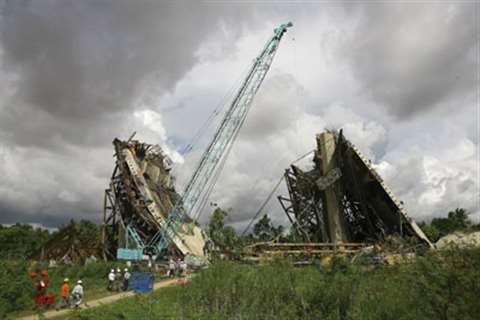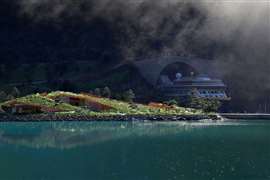Inquiry reports on Vietnam’s Can Tho Bridge collapse
07 July 2008

A commission set up to investigate the cause of the September 26, 2007 collapse determined it was an "unfortunate circumstance" and did not assign blame, reported the Ho Chi Minh City Law newspaper.
Construction Minister Nguyen Hong Quan, head of the commission, said police are still investigating the possible administrative or criminal liability of people involved in the accident, the newspaper reported.
"The uneven sinking limited to the foundation of a temporary pillar is considered an unfortunate circumstance that is difficult to foresee in normal designing," the newspaper quoted the commission's report as saying.
Soil-drilling tests of the foundation found soft sand in one sample and relatively solid sand in the other. This left the pillar lopsided and eventually resulted in bolts and crossbars breaking, causing "a domino collapse" of the bridge, the newspaper quoted the report as saying.
Asked whether the accident could have been prevented if the contractors had performed the drill tests prior to setting the pillar, Mr Quan said even US construction standards do not require multiple soil drilling tests for one temporary pillar.
The 2.75 km-long bridge will link the southern province of Vinh Long to Can Tho, the biggest city in the Mekong Delta. It is being constructed by a consortium of three Japanese companies, Taisei Corp., Kajima Corp. and Nippon Steel Corp.
Nippon Koei-Chodai is the chief consultant on the US$ 218 million project, which is largely funded by the Japan Bank for International Cooperation (JBIC). Japan is Vietnam's single largest donor, providing the country with more than US$ 800 million in soft loans each year.






